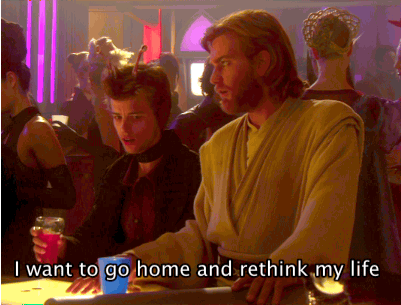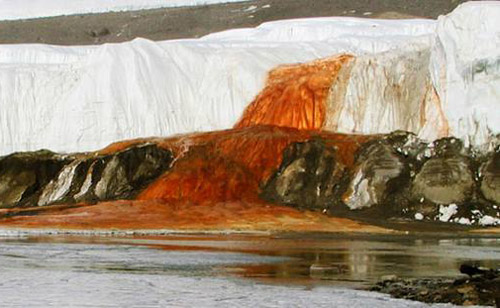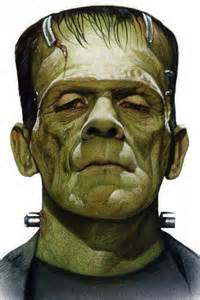
I’m not such a dedicated Debbie Downer that I’m going to argue
that fine literature will disappear in 2019, but I do believe we are at the
cusp of creating an environment where fine literature will become dusty fodder
for museums rather than being a beloved hallmark of our homes.
Book lovers know this has already happened with “the classics.” Public schools
gave many of those titles the boot long ago so only home schoolers and
bibliophiles read them these days. I’m suggesting something further: we’re
tumbling into a more disconcerting, more cavernous hole.
Here’s why: our internet culture is training us to (1) think less critically
and (2) trust the untrustworthy and (3) accept mediocrity as awesomeness and
(4) bury quality books and elevate less captivating literature. Let’s briefly
run through each step.
Click Bait & Quick Gratification
How many times have you seen a headline that looked especially intriguing but when you followed the link, it took you to some lame article that (1) didn’t offer the headline’s promised content and (2) stunk so badly, you left the article disgusted? It’s so common, we’ve given it a name: click bait. Or is it clickbait? Either way, it’s unhappy.
Click bait is effective and it has served its purpose (to generate traffic) so well that the practice is becoming ubiquitous among marketing strategists. Even quality content providers have to come up with snappy, catchy, one-liners or else they’ll get lost in the quagmire of internet invisibility. SEO suicide. If you don’t take the bait and click, they lose your traffic and a trafficless site is a dead, unprofitable site. You’ll be stuck reading articles lacking substance instead, possibly even reading stuff that’s inaccurate and harmful to your goals.
If this is so annoying, why are they doing it? Well, think about it. When you look up something on the internet, you’re usually not looking for an exhaustive treatise to teach you everything you need to know about unclogging your sink, you’re looking for a quick fix that is simple and easy to follow. Clearly, we do more of that than searching for things that educate us online because supply and demand have rewarded sites that cater to this approach.
Keyword Stuffing & SEO Tricks
One might hope that if you narrow your search, you’ll eventually find great click bait for your specific niche, right? The answer depends on the popularity of your topic. If you’re searching for the answer to “Who’s Chris Hemsworth Dating?” (hopefully, that would be his wife) you’ll find the answer right away, but if you’re looking for the answer to “How Do I Make My Book a Best Seller?” you’ll end up with so much fluff-filled click bait that it takes some authors years to find good, viable answers.
You see, I’m not off topic – it simply can’t be addressed in your standard 300-500 word article. Yes, 300-500 word articles are a thing. Some people write them for a living and often, they haven’t the foggiest clue what they’re really talking about. But we’re supposed to trust them implicitly, right?
The bigger problem (if getting bad information wasn’t problem enough) is that when you’re looking for something more comprehensive and higher quality than a standard 300-500 word article, you often end up digging a lot deeper into those google results to get past the click bait (and keyword stuffing … oh, and SEO tricks) that push over simplified, less academic articles to the top. If you find an entire website that offers reliable information, that’s great, but it may not offer you details about the narrow topic you’re hoping to research – varying artificial intelligence algorithms, for instance.
Search engines are written by left brainers.
Fine literature is often written by right brainers.
Rarely do those two harmoniously meet together.
Book Store Searches
So what does any of this have to do with fine literature? No one writing fine literature cares about search engine optimization! Right?
Right. And that’s my point.
I should probably explain that a little better, huh? There are authors out there writing some pretty incredible stuff but they’re languishing in obscurity.
Why? Because (1) they’re not writing for search engines and (2) most readers anxiously looking for their next great read are using a search engine, whether it’s Amazon’s search engine, Goodreads’ search engine, Barnes & Noble’s search engine, or … you got the point. Some of us find books in a tangible bookstore but we’ve become the minority and keyword stuffing has gotten so out of hand on Amazon that occasionally, you find nonsensical book titles that are nothing short of shameless keyword stuffing. Many top picks in various categories stuff keywords at the bottom of their book descriptions (and editorial reviews) to increase their chances of being found by you, their target reader. If that was the final end of gaming the system, that would be forgivable, if not advisable. However, it continues on many levels.
Looking for a book about travel destinations? Expect to find some good fantasy literature there because travel categories have less competition (though shapeshifting werewolf books may never be anything more than a distraction there). Looking for a short story? Expect to find lots of romance. Why? Romance categories are super competitive so opportunity seekers overflow into other, less related categories. Looking for something random? Try the steampunk category. Seriously. It’s usually pretty clear what constitutes steampunk but opportunists force their way into that category and keyword stuff and … well, I told you about that earlier. However, I’ll bet that if you dig deeply into the steampunk category, you’ll find a book with some pretty deep insights about life but it probably ranks #134,968 in that category. Why? Because the author is trying to write meaningful, lasting literature and he/she doesn’t have the slightest clue how to write for a search engine. That’s left brain work. Why does that matter?
Search engines are written by left brainers. Fine literature is written by right brainers. Rarely do those two harmoniously meet together.
Fine Literature’s Demise
True enough, some fine literature makes its way to the top of various search engines and there is plenty of it around so what’s the problem? My point hasn’t been that there isn’t much fine literature available to read or even that there isn’t much fine literature that is discoverable. I believe there is.
My point is that our internet driven culture is creating an environment where deep, thoughtful literature is likely to be lost in a mountain of books lacking substance but boasting the best keywords. There are no systems in place to contain the problem other than telling the next Leo Tolstoy or Emily Dickinson that they need to learn how to write search engine friendly book blurbs.
This isn’t an Amazon issue, nor is it a google issue. It’s a worldwide, internet cultural issue that’s easy to understand and easy to trace back to its roots.
It’s also difficult to resolve.
Today’s problem is that millions of people are publishing books, but no one has time to read them to determine which ones are worthy of significant attention. Last century’s problem was that publishing companies ignored some talent altogether. Today’s problem is more egregious: in this information age, we’re so overwhelmed with information (and so under-educated about how to make meaningful opinions about information we experience) that we’re losing our ability to discern fine literature in the first place. And if fine literature continues to become more difficult to find and more difficult to discern, it will eventually find its place on dusty museum shelves.
I’m interested in plausible solutions and I’m not alone.
Thousands of authors are addressing these issues across the globe but most of the chatter is lost in obscurity. Imagine that. I do have some connections that may carry sway in the right places if you have any suggestions. So, if you have some clever ideas, deep thoughts, or even if you just have a question, let me know in the comments below. Until then, go read a book and don’t forget that reading science fiction and fantasy is good for your health, well being, and your mind.



